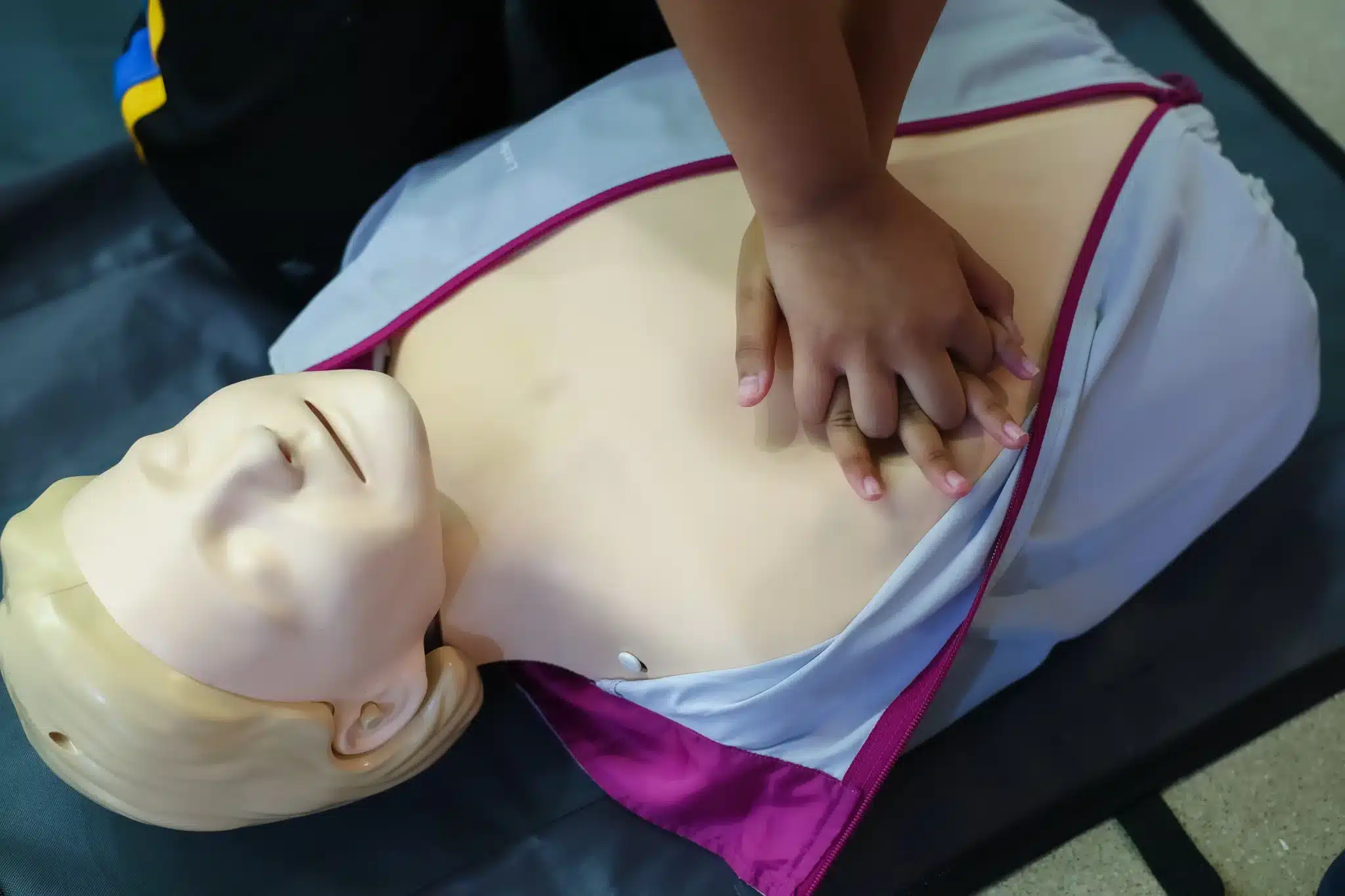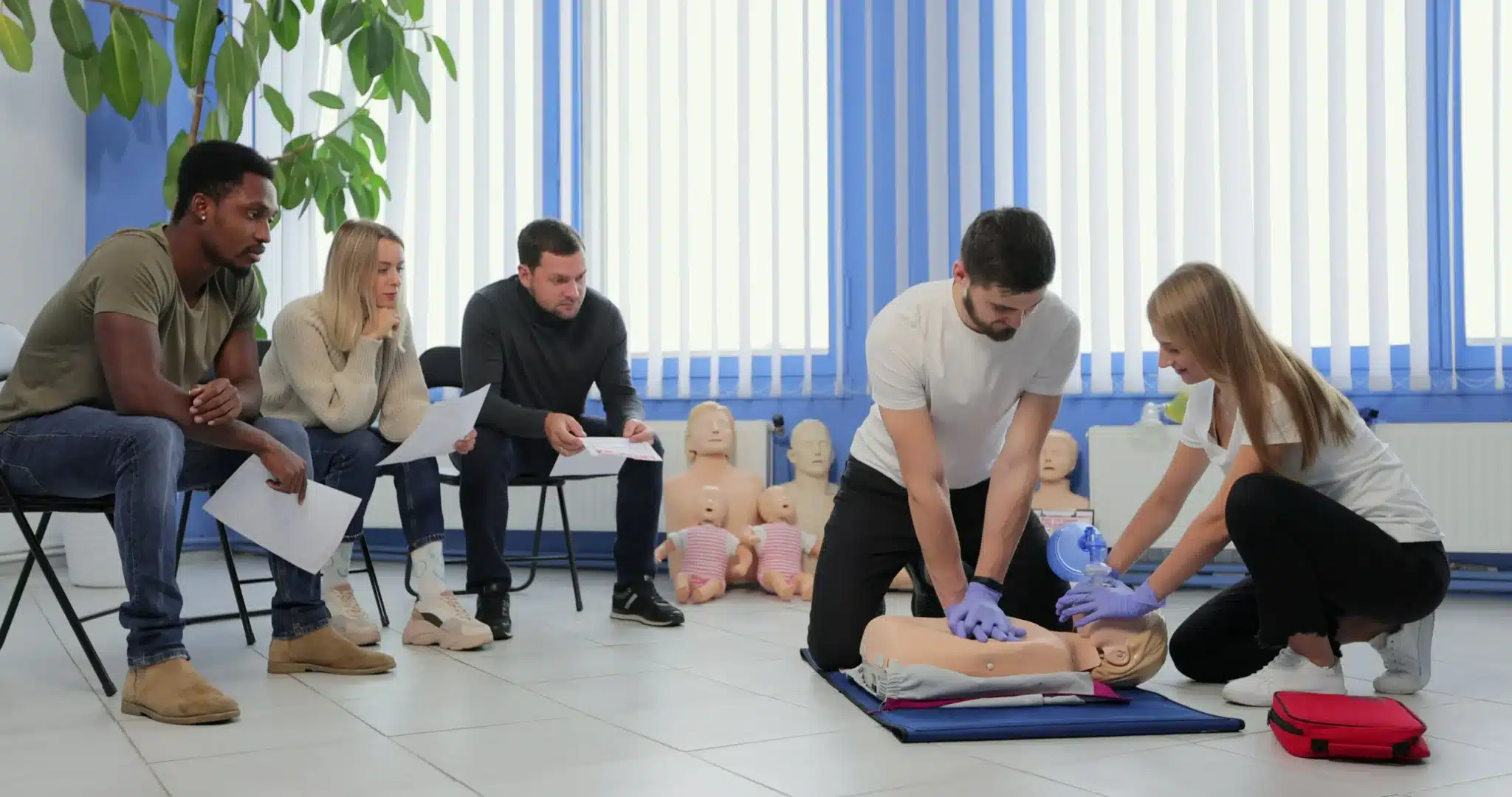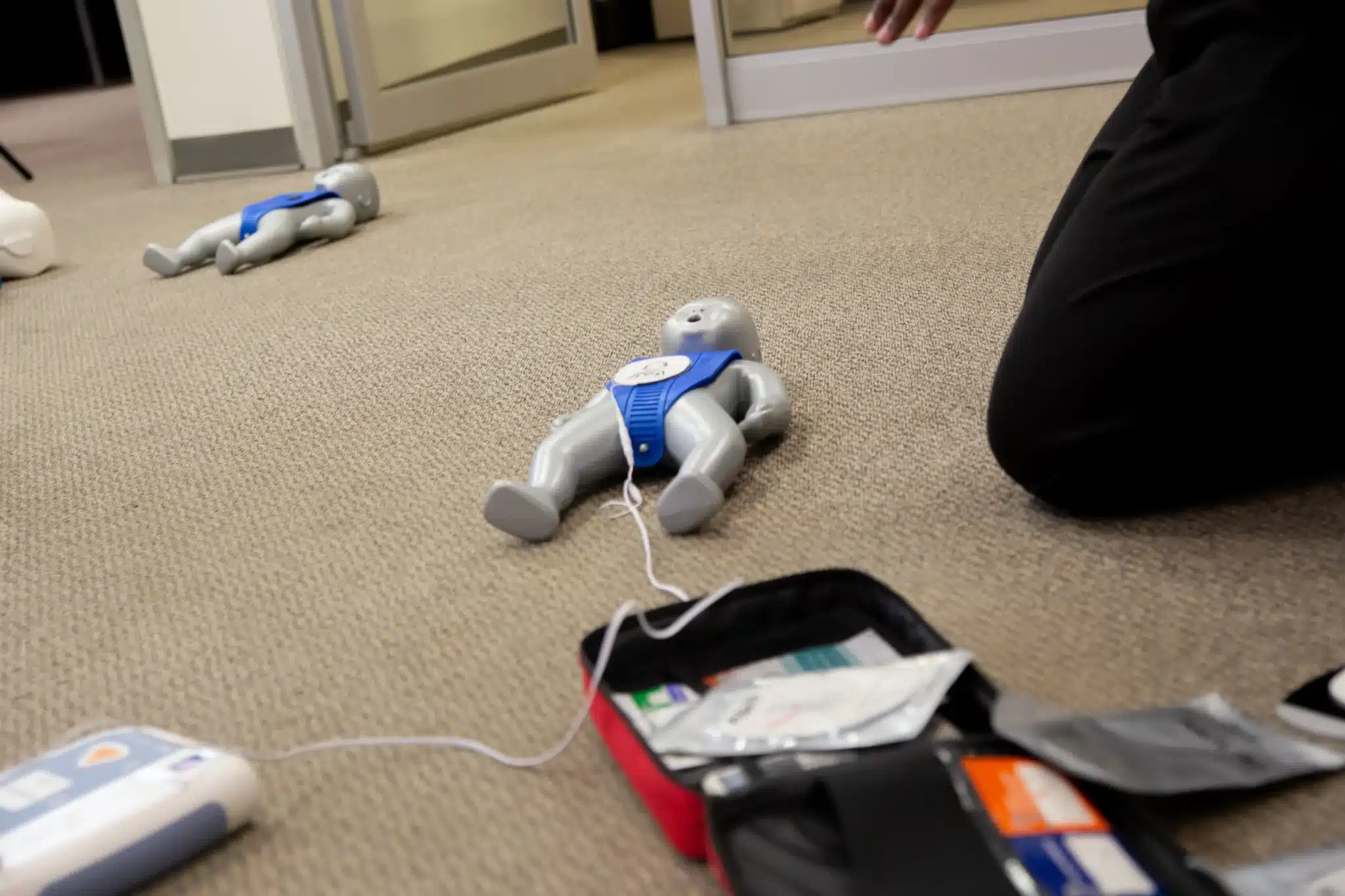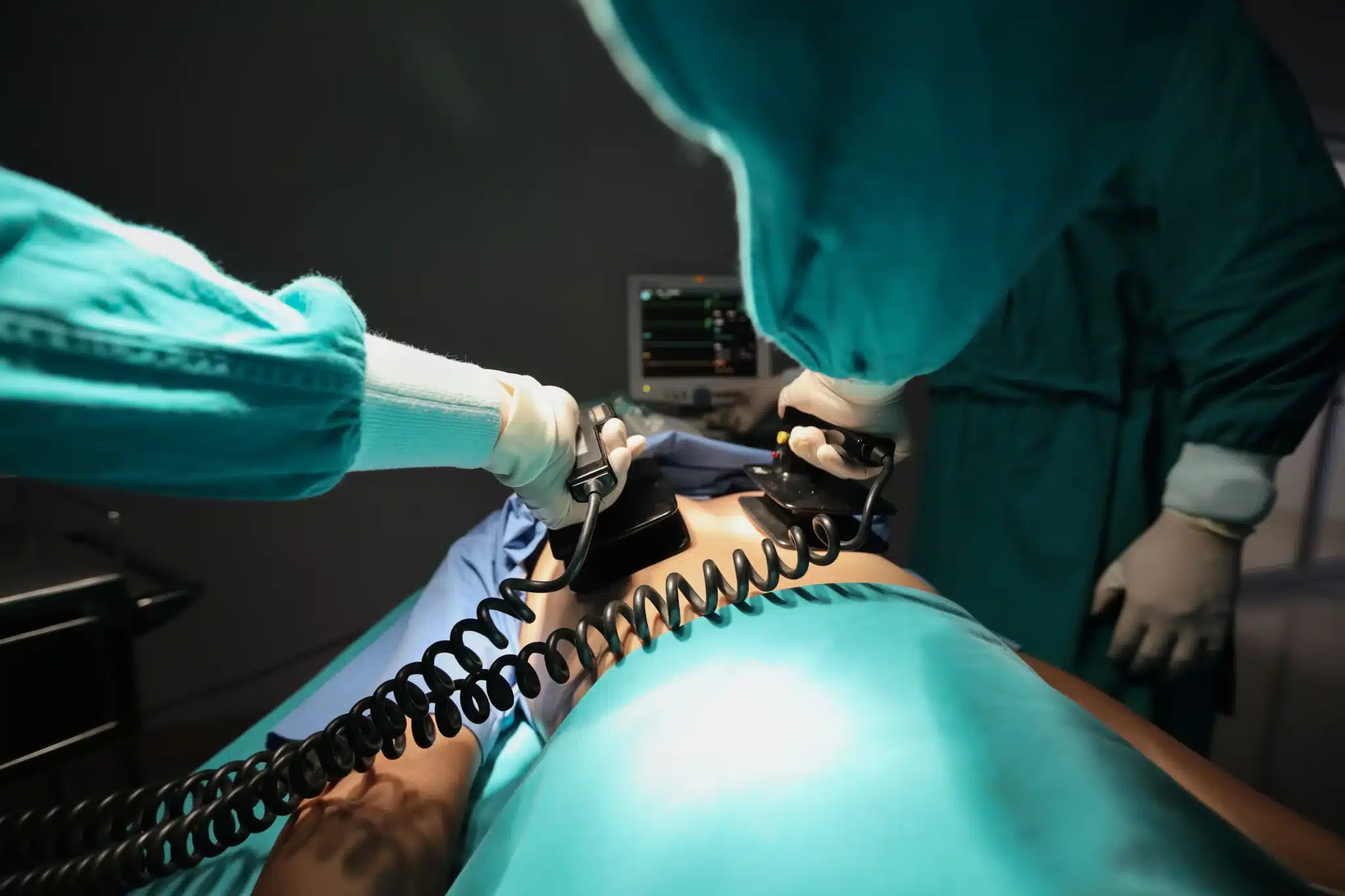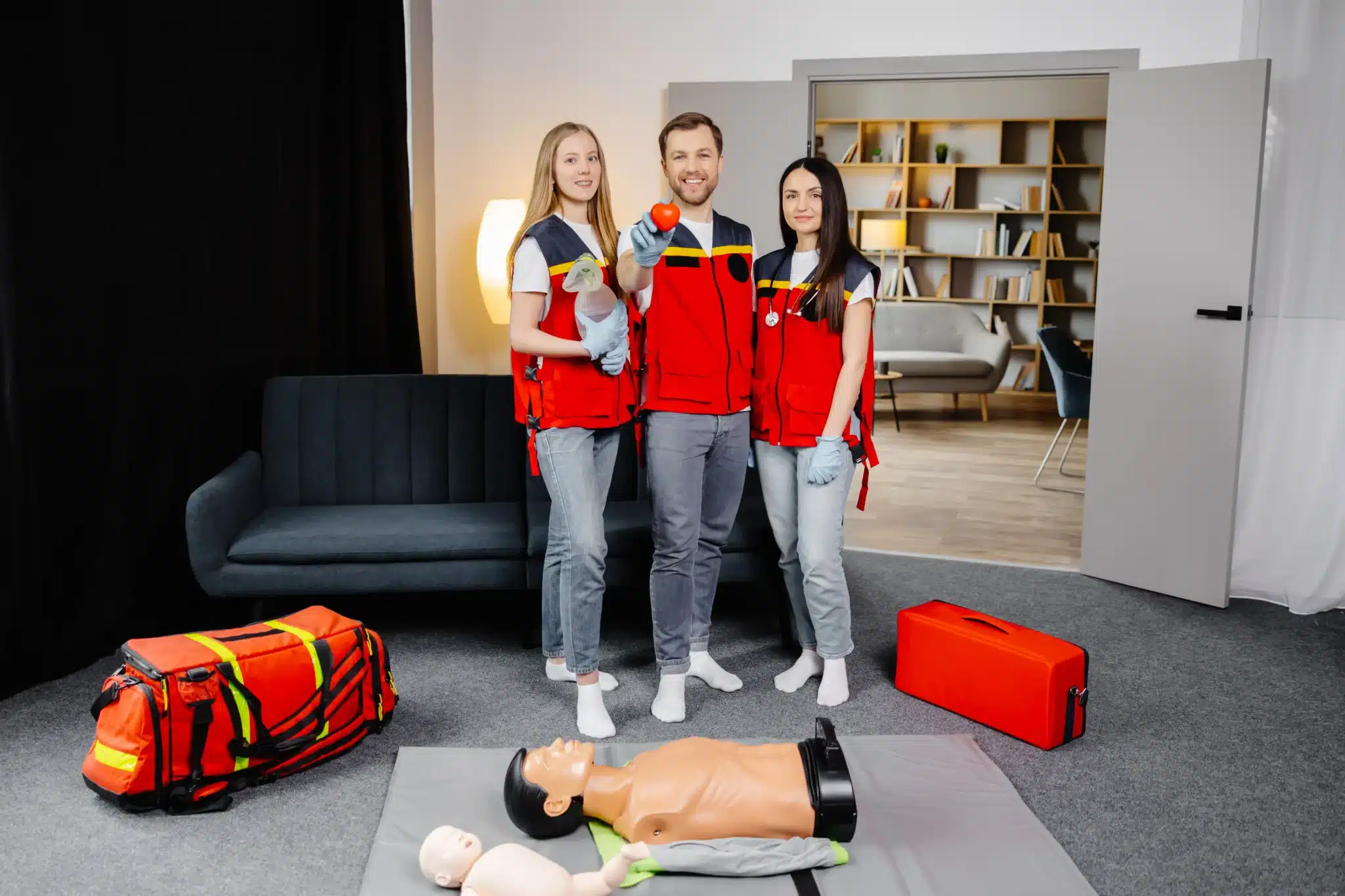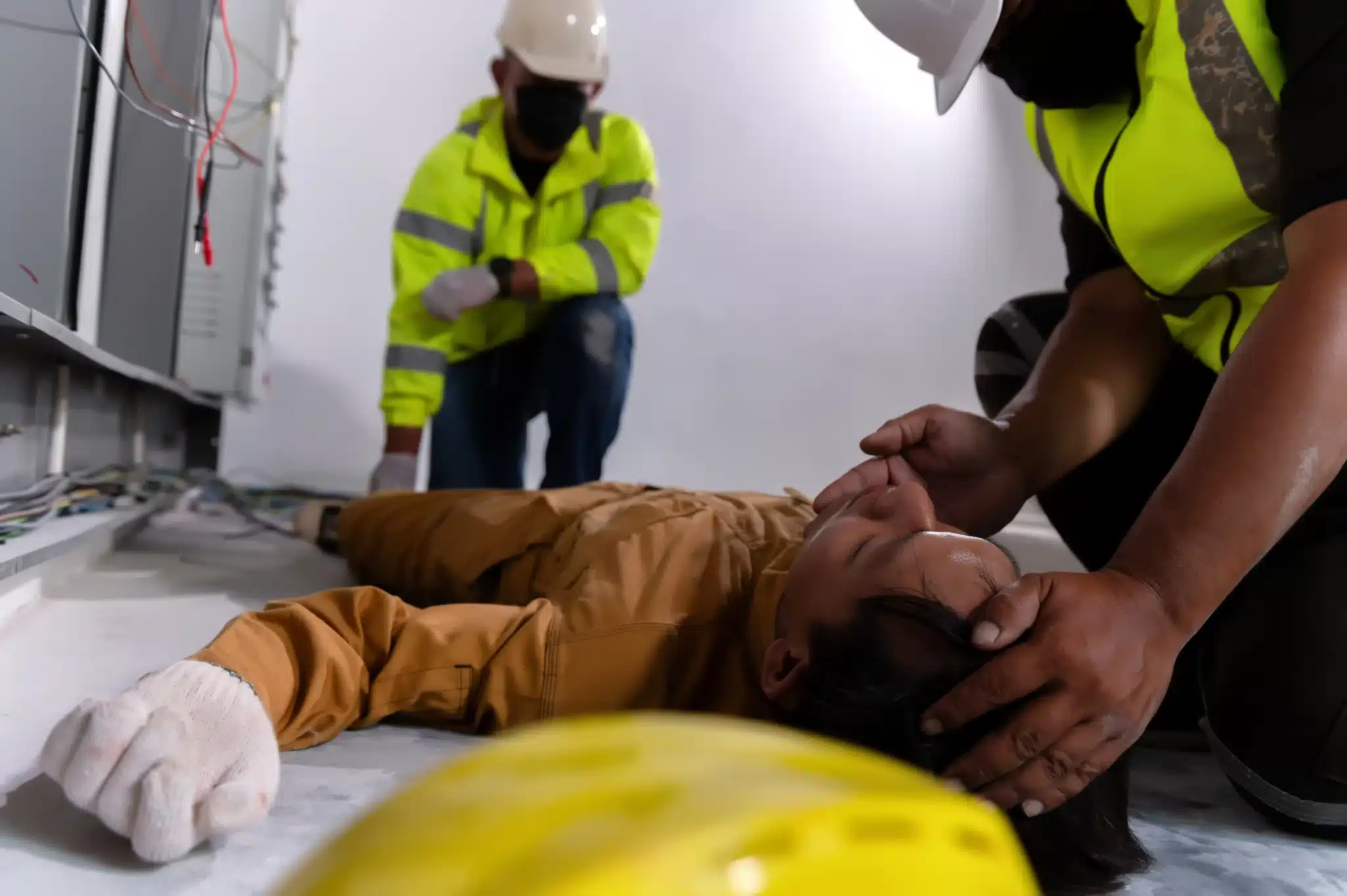As a healthcare provider, you’re dedicated to delivering the best possible patient care, especially during emergencies. But what happens when you’re faced with a sudden cardiac arrest or another life-threatening cardiovascular event? Are you equipped to handle the pressure and make quick, informed decisions? Advanced Cardiac Life Support (ACLS) training empowers you with the knowledge and skills to confidently manage these critical situations. This comprehensive guide explores the ins and outs of ACLS, from the core components of the training to where you can find certified advanced cardiac life support in Newark. We’ll also discuss the importance of ongoing skill maintenance and psychological preparedness to ensure you’re always ready to provide the highest level of care.
Key Takeaways
- ACLS is essential for healthcare professionals: It provides advanced life-saving skills for managing cardiovascular emergencies and directly impacts patient outcomes. Choose a course format and training center that aligns with your learning style and professional goals.
- Hands-on training is key for ACLS proficiency: Beyond lectures and textbooks, ACLS courses emphasize practical application through simulations and real-world scenarios. This prepares you for the demands and stress of actual emergencies.
- Maintain your skills and prioritize your well-being: Regularly review ACLS guidelines, seek continuing education, and practice your skills. Managing stress through mindfulness and support systems is crucial for performing effectively in high-pressure situations.
What is Advanced Cardiac Life Support (ACLS)?
Definition and Purpose of ACLS
Advanced Cardiovascular Life Support (ACLS) equips healthcare professionals with the skills to manage cardiopulmonary arrest and other cardiovascular emergencies. It’s a vital part of emergency medical care, building on the foundation of Basic Life Support (BLS). ACLS focuses on recognizing and treating life-threatening conditions like heart attacks, strokes, and respiratory failure. The goal is to improve patient outcomes by promoting a systematic approach to these critical situations. If you’re a healthcare provider, understanding and mastering ACLS is essential for delivering the best possible care during those crucial first moments of a medical crisis. You can learn more about our ACLS courses.
Key Components of ACLS Training
ACLS training covers a range of essential life support techniques, including high-quality CPR, airway management, and the use of automated external defibrillators (AEDs). The curriculum also addresses identifying and managing serious heart and breathing problems. Beyond these core skills, ACLS training incorporates realistic scenarios to prepare healthcare professionals for the often stressful environment of a real emergency. The program emphasizes team dynamics and clear communication, recognizing that effective teamwork is crucial for successful patient outcomes. Contact us to learn more about our training options and how they can benefit you. We offer group discounts for ACLS training.
Why is ACLS Important for Healthcare Professionals?
This section explores why Advanced Cardiac Life Support (ACLS) certification is so important for healthcare professionals. We’ll look at the crucial skills gained through ACLS training and how those skills directly affect patient outcomes.
Critical Skills Gained Through ACLS
ACLS training gives healthcare providers the essential skills to manage cardiopulmonary emergencies. It emphasizes a systematic approach to patient care, covering everything from basic life support to advanced interventions. The program teaches healthcare professionals how to recognize and treat life-threatening arrhythmias, administer medications, manage airways, and provide post-resuscitation care. These skills are vital for nurses, paramedics, physicians, respiratory therapists, and other healthcare professionals who might encounter cardiac arrest or other cardiovascular emergencies. ACLS goes beyond the basics of CPR and first aid, providing a deeper understanding of what’s happening in the body during these critical situations. ACLS courses often use realistic scenarios and simulations, letting participants practice their skills in a safe environment. This hands-on training builds confidence and competence, preparing healthcare professionals to respond quickly and efficiently during real emergencies. For healthcare providers in Fremont, CPR classes offer comprehensive ACLS training.
Impact on Patient Outcomes
The skills learned in ACLS training directly improve patient outcomes. Studies show that timely and effective interventions during cardiac arrest significantly increase the chances of survival and reduce long-term complications. By following ACLS protocols and using the skills gained through training, healthcare professionals can optimize patient care during these critical events. Proper management of airways, prompt medication administration, and effective teamwork can significantly impact a patient’s recovery. ACLS also emphasizes post-resuscitation care, which is crucial for minimizing neurological damage and improving overall patient outcomes. For healthcare professionals dedicated to providing excellent care, ACLS certification is invaluable. It empowers them to make informed decisions, act decisively, and ultimately save lives.
ACLS Training in Newark
Course Types and Formats
ACLS courses in Newark use a blended learning format, combining online coursework with in-person skills sessions. This lets you study the core material at your own pace before practicing essential techniques in a hands-on environment. The online portion, often called HeartCode ACLS, covers essential algorithms and protocols. You’ll then complete an in-person session with an instructor to demonstrate proficiency in skills like rhythm recognition and bag-mask ventilation. RWJBarnabas Health specializes in this blended learning model. Instructor-led courses are also available for those who prefer a traditional classroom setting.
Duration and Certification
The length of an ACLS course depends on the format and your prior experience. The online portion (HeartCode ACLS) typically requires 5–6 hours. The in-person skills session adds another few hours, depending on the program. A full, in-person ACLS course can take approximately 15 hours including breaks. You’ll receive your ACLS certification after completing both the online and in-person components. This certification is valid for two years. Renewal courses are available to maintain your credentials.
Top ACLS Training Providers in Newark
Fremont CPR Classes
Fremont CPR Classes offers the ACLS HeartCode blended learning course, combining online modules with hands-on skills practice. This is a good option for busy healthcare professionals. They also offer group discounts, making it cost-effective for teams.
Newark Beth Israel Medical Center
Newark Beth Israel Medical Center provides a comprehensive ACLS course emphasizing team dynamics, communication, and post-cardiac arrest care. Their program prepares healthcare providers for real-world emergencies.
RWJBarnabas Health
RWJBarnabas Health offers a structured ACLS program with distinct online and hands-on components. This balanced approach helps you learn the material and develop practical skills.
Heart Start CPR
Heart Start CPR offers online and blended learning AHA HeartCode ACLS certification courses. This flexibility accommodates different learning styles and schedules. They also provide renewal courses.
Brooks CPR NY NJ
Brooks CPR provides ACLS certification courses for healthcare professionals seeking initial certification or renewal. They offer a range of courses, including BLS and PALS.
What to Expect in an ACLS Course
This section outlines what you can expect during an ACLS course, from curriculum content to the hands-on training involved. Understanding these elements can help you prepare and make the most of your learning experience.
Curriculum Overview
The ACLS course curriculum covers a comprehensive range of advanced life-saving techniques. You’ll learn to recognize and manage life-threatening emergencies, including cardiac arrest, stroke, and respiratory failure. The course emphasizes the systematic approach of early assessment, prompt intervention, and effective team dynamics. Key areas of focus include airway management, rhythm recognition, and pharmacology for emergency situations. For more details about the curriculum, visit the American Heart Association BLS page.
Hands-on Practice and Simulations
ACLS courses aren’t just lectures and textbooks. They emphasize practical application through hands-on training and realistic simulations. You’ll work with medical equipment, practice essential skills like intubation and IV insertion, and participate in mock emergency scenarios. These simulations provide a safe environment to apply your knowledge, develop critical thinking, and build confidence in managing real-life emergencies. Fremont CPR Classes offers hands-on training in a supportive environment.
Team Leadership and Communication Training
Effective teamwork and clear communication are crucial in medical emergencies. ACLS training emphasizes these skills by incorporating team-based scenarios and communication exercises. You’ll learn how to communicate within a team, delegate tasks, and coordinate efforts to provide optimal patient care. This training prepares you to lead and participate in resuscitation teams, ensuring a coordinated and efficient response during critical situations. Contact us to learn more about our ACLS training.
Prepare for ACLS Training: Prerequisites
Required Qualifications and Prior Knowledge
Before you begin ACLS training, make sure you meet the prerequisites. You’ll need a current BLS CPR certification for healthcare providers. A good grasp of electrocardiograms (EKGs) and pharmacology is also essential. Most ACLS courses require passing an online pre-test before the class. Contact Fremont CPR Classes to check your readiness for ACLS training and get any questions answered.
Recommended Study Materials and Resources
Set yourself up for success by reviewing the latest American Heart Association ACLS guidelines and algorithms. Resources like the ACLS Provider Manual are invaluable tools for understanding core concepts. Familiarize yourself with different case scenarios and practice applying the algorithms. This preparation will not only make the course content easier to manage but also reinforce your learning.
Overcome Common Preparation Challenges
ACLS training can be intense. Many students feel overwhelmed by the amount of information. Create a realistic study schedule and stick to it. Break the material into smaller, more manageable sections. If you struggle with a particular concept, reach out to your instructor or study with classmates. Group discounts are available at Fremont CPR Classes. Remember, the goal is to build confidence and competence in providing advanced cardiac life support. Focus on mastering the practical skills and developing your critical thinking abilities. This preparation will help you manage the stress of real-world emergencies.
ACLS Training Costs & Financial Aid
Average Pricing for Different Course Types
Understanding the cost of ACLS training is an important first step. Pricing often varies based on the course format and location. For example, the online portion of the HeartCode ACLS course typically costs around $250, including the ACLS Provider Manual eBook. The required in-person skills session usually adds another $100 or so and takes about four hours to complete. Remember that these prices can change, so it’s always a good idea to check with your chosen ACLS provider for the most up-to-date pricing. Fremont CPR Classes offers competitive pricing and packages, so reach out for a personalized quote.
Discounts and Financial Aid Options
Want to make your ACLS training more affordable? Many training centers offer various discounts and financial aid options. Group discounts are common, so gather your colleagues and ask about group rates. Some providers also offer discounts to students and military personnel. Be sure to ask about any applicable discounts when you contact a training center. You can also explore resources like the National CPR Association, which may offer additional financial aid opportunities or alternative certification paths. Don’t let cost stand in the way of gaining these essential life-saving skills.
Get ACLS Certified
Getting your ACLS certification is a straightforward process. It involves completing a comprehensive course, passing an exam, and staying up-to-date with the latest guidelines through regular renewal.
Steps to Obtain Certification
First, you’ll need to find an accredited ACLS provider. Fremont CPR Classes offers ACLS courses designed to equip you with the essential skills needed in medical emergencies. These courses cover everything from recognizing and intervening in cardiac arrest and stroke to effective team leadership and communication during critical situations. The training typically includes interactive lectures, hands-on practice, and realistic simulations to build your proficiency.
Exam Structure and Content
After completing the course, you’ll take the ACLS Provider Course Exam. This exam evaluates your understanding of core ACLS concepts and your ability to apply them. It includes both written and practical components. The written portion assesses your knowledge of the protocols and algorithms, while the practical portion tests your skills performing essential procedures. These procedures include CPR, using a defibrillator, and administering medications. The American Heart Association offers more information about the exam content.
Renewal Requirements
ACLS certification is typically valid for two years. To maintain your certification and stay current with advancements in advanced cardiac life support, you’ll need to complete a recertification course. This ensures you’re always prepared to provide high-quality care in emergency situations. HealthForce Training Center offers guidance on maintaining your ACLS certification and keeping your skills sharp.
Choose the Right ACLS Training in Newark
Factors to Consider When Selecting a Course
Finding the right ACLS course involves more than just proximity. Think about your goals for the training. Are you a seasoned healthcare provider needing a refresher, or are you new to ACLS? Your experience level will help determine the best fit. Some providers offer an ACLS course for experienced providers, focusing on honing existing skills and incorporating the latest guidelines.
Also, consider the course format. Do you prefer in-person, hands-on learning, or does a blended or online course better suit your needs? Think about your learning style and schedule. Finally, consider class size. A smaller class may offer more personalized instruction and opportunities to practice critical skills.
Importance of Accreditation and Instructor Qualifications
Choosing an accredited course, like one from the American Heart Association (AHA), is crucial. Accreditation ensures the course meets quality standards and covers essential material. Look for training centers with AHA certifications to ensure high-quality instruction.
Equally important are the instructor’s qualifications. Experienced instructors actively involved in healthcare can offer valuable insights. Check if instructors are healthcare professionals with current certifications and a strong ACLS background. A knowledgeable instructor can significantly impact your learning. Fremont CPR Classes is a woman-owned AHA Training Center known for its high-quality courses and excellent customer service. They offer various courses, including BLS and ACLS, across over 60 cities.
Make the Most of Your ACLS Training
Getting your ACLS certification is a significant accomplishment, but the real value lies in applying and maintaining those skills throughout your healthcare career. This section explores how to maximize your ACLS training and truly prepare for real-world emergencies.
Apply ACLS Skills in Real-World Scenarios
ACLS training isn’t just about memorizing algorithms; it’s about developing the critical thinking skills to manage complex, high-pressure situations. Realistic simulations are key to bridging the gap between the classroom and the emergency room. These scenarios often present situations you might face during a code, such as cardiac arrests, respiratory failure, and stroke. By practicing in a safe environment, you’ll gain confidence in your ability to assess, prioritize, and implement life-saving interventions. This hands-on experience is invaluable in preparing you for the unpredictable nature of real emergencies.
Continuing Education and Skill Maintenance
Maintaining proficiency in ACLS requires ongoing effort. Medical knowledge and best practices are constantly evolving, so staying current is crucial. Regularly review the latest ACLS guidelines and seek out opportunities for continuing education. Consider refresher courses, workshops, and online resources to reinforce your knowledge and refine your skills. Consistent practice, whether through simulations or case studies, will help solidify your understanding and ensure you’re always prepared to provide the best possible patient care. Focus on honing essential skills like effective communication, accurate ECG interpretation, and decisive action. Staying informed and practicing your skills will help you adapt to new advancements and maintain your confidence in emergency situations.
Psychological Preparedness for High-Stress Situations
While technical skills are essential, psychological preparedness is equally important for effective ACLS application. Cardiac emergencies are inherently stressful, and healthcare providers often face intense emotional pressure. Managing stress during these critical moments is crucial for maintaining composure and thinking clearly. This might involve practicing mindfulness techniques, seeking support from colleagues, or engaging in debriefing sessions after challenging events. Remember, taking care of your own well-being is essential to providing optimal patient care. Prioritizing your mental and emotional health will allow you to perform at your best when it matters most.
Related Articles
- ACLS HeartCode in Newark: Everything You Need to Know – Fremont CPR Classes
- ACLS Certification in Fremont: A Comprehensive Guide
- Best BLS ACLS PALS Training in Fremont – Fremont CPR Classes
- Online ACLS Classes in San Jose: Your Guide – Fremont CPR Classes
- CPR Training in Newark: Your Complete Guide – Fremont CPR Classes
Frequently Asked Questions
What is the difference between BLS and ACLS? BLS, or Basic Life Support, focuses on immediate life-saving techniques like CPR and using an AED. ACLS builds upon BLS, providing healthcare professionals with advanced knowledge and skills to manage complex cardiovascular emergencies and other respiratory emergencies. Think of BLS as the foundation and ACLS as the next level of expertise.
How long does it take to get ACLS certified? The time commitment varies depending on the course format and your prior experience. Blended learning courses, combining online modules and in-person skills sessions, offer flexibility. The online portion typically takes 5–6 hours, followed by a shorter in-person session. A traditional, fully in-person ACLS course can take about 15 hours including breaks.
How much does ACLS training cost? Costs depend on the training center, course format (online, blended, or in-person), and whether you’re seeking initial certification or recertification. Blended learning courses often have separate fees for the online and in-person components. Many training centers offer group discounts, so inquire about those options. Don’t hesitate to contact different providers to compare pricing and find the best fit for your budget.
What if I don’t have a medical background? Can I still take an ACLS course? ACLS courses are specifically designed for healthcare professionals who may encounter cardiopulmonary emergencies in their practice. A current BLS for Healthcare Providers certification is typically a prerequisite. A strong understanding of medical terminology, EKG interpretation, and basic pharmacology is also highly recommended. If you’re not a healthcare professional, consider pursuing BLS certification first.
How can I prepare for the ACLS exam? Preparation is key to success in the ACLS course and exam. Review the latest American Heart Association ACLS guidelines and algorithms. Familiarize yourself with the ACLS Provider Manual and other recommended study materials. Practice applying the algorithms to various case scenarios. Consider forming study groups with classmates to reinforce learning and address any challenging concepts. Most importantly, practice your hands-on skills until you feel confident and comfortable.
